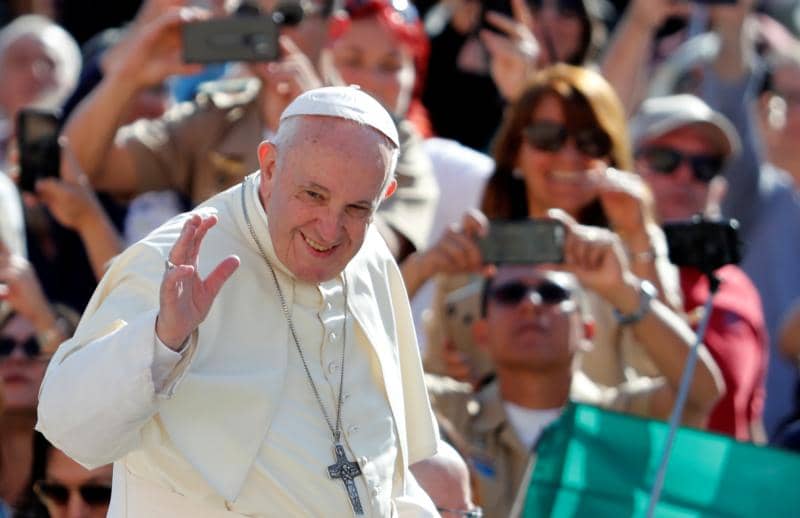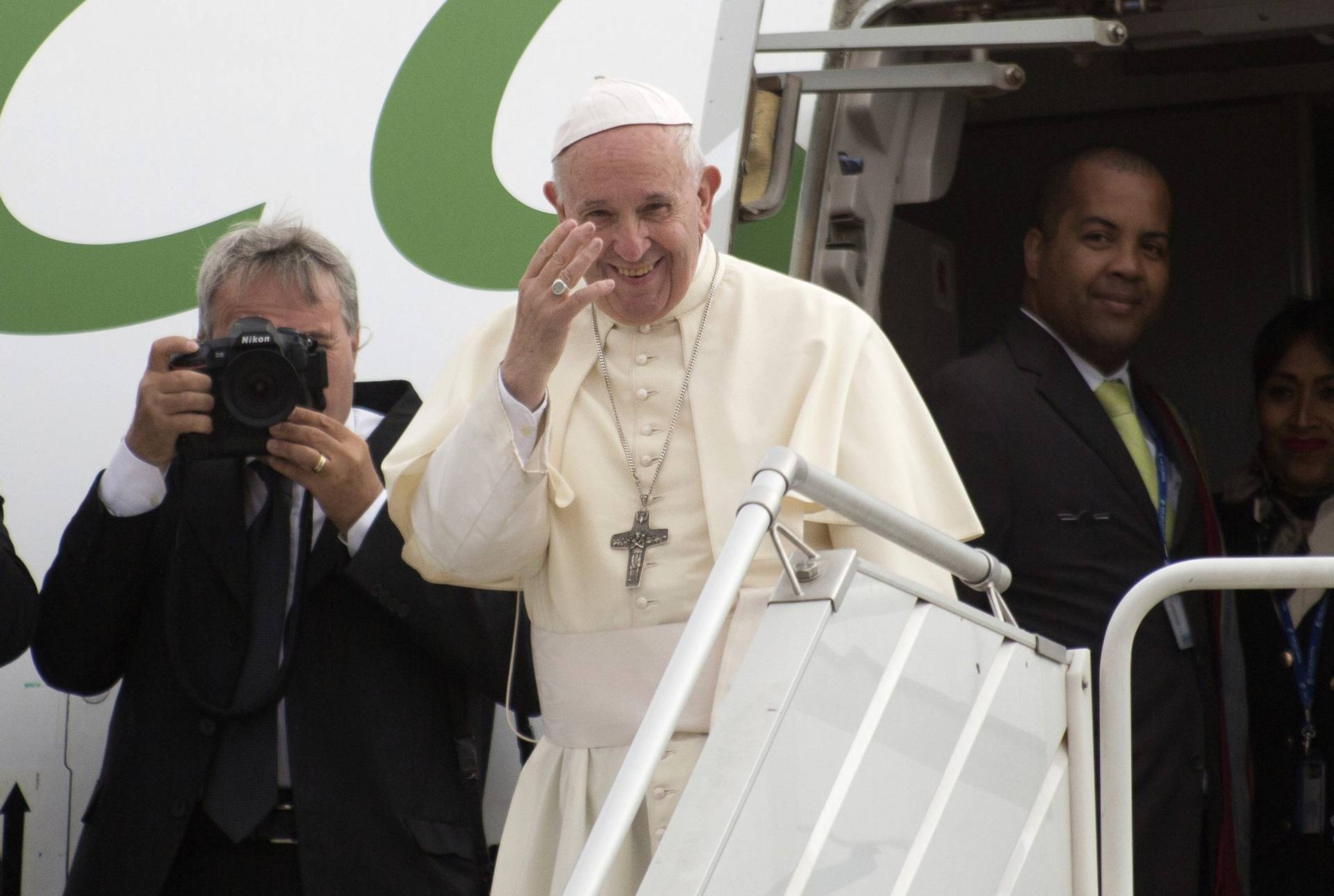ANTANANARIVO, Madagascar – Completely disregarding his prepared text while meeting a group of cloistered nuns, Pope Francis warned the sisters against the “educated devils,” who come in disguise as a “noble, educated person, so often as a spiritual father.”
“Always transparency!” Francis told the sisters on Saturday, urging them to speak up if anyone wants to “disturb their tranquility,” including if that someone is their spiritual director.
“Please, dear sisters, if you hear of something strange happening, tell someone immediately. Immediately,” Pope Francis said, urging the sisters not to remain quiet when there’s something that takes away their peace.
The “tempter” doesn’t want to be discovered, Francis said, and for this reason, tries to dissuade those he’s tempting- or hurting- from speaking up to their prioress or to other religious sisters.
Francis’s words came on Saturday during the first full day of his Sept. 6-10 visit to Madagascar, the world’s fourth largest island. They were delivered during a homily at the Midmorning Prayer Monastery of the Discalced Carmelites in Antananarivo.
Present in the monastery were some 100 contemplative sisters from various convents around the country. Outside the small chapel, there were also some 70 novices. The Discalced Carmelites arrived in Antananarivo in 1927, but the first stone for the monastery wasn’t set until 1937. The community Francis visited has 13 sisters with perpetual vows, three professed, a novice and a postulant.
Most of his improvised remarks centered around the story of St. Therese of Lisieux, whom he described as a “faithful friend,” who now accompanies “an old man” much like when she was young and accompanied an old sister who was in the same convent as her.
The pope said that the saint helps him “make peace,” and that sometimes he’s a bit “neurotic” and dismisses her, or that sometimes the “pain” won’t let him hear her, but she’s insistent.
“I didn’t want to talk about theories,” he told the cloistered nuns, explaining why he didn’t give any theological insight and instead shared his personal experience with them, about the faithful friend, to remind them what a saint is capable of accomplishing.
He went on to tell the story of St. Therese as a young sister trying to help an elderly nun who could barely walk and who didn’t want help. Regardless, the young, smiling nun always accompanied the elderly one, he said.
The story, he told them, is a reflection of the spirit with which one leads community life, trying to be charitable in the small and the big things, and also being obedient, fulfilling the request she’d been given of helping the ailing sister.
Francis also told the religious that St. Therese’s obedience came from making “small steps” that might have seemed like nothing, but they “attract, they ‘enslave’ God, small threats that ‘imprison’ God,” keeping “him among us.”
The devil creeps in when nuns think that they have to become a prioress or capitular to change things. But if they want to change more than the monastery or religious life, if they want to change the world, they have to begin with these “small acts of love, of self-denial,” as these small steps, “imprison God,” keeping him close.
The pope also urged the religious sisters to fight the sprit of “worldliness.” He spoke of the devil who he said can take many hidden forms. Francis said, they should “close the door and think of small gestures of love. These save the world.”
“Maybe the day you entered the convent, the devil remained sad at the door,” he said. “Then he sought advice from a wiser devil, a more cunning one … who probably said, ‘be patient, wait, wait.’ This is a common way of proceeding for the devil.”
When the devil leaves a soul free, Francis said, he might leave for a while, but then wants to come back. Often he does in the form of “educated devils.”
He told the sisters not to let the devil into their hearts. Instead speak with the prioress, the superior or a sister.
In the case of St. Therese, the pope said, she too struggled with the devil, particularly at the hour of her death, during the darkness of the last days of her life. She thought she had lost her faith, but called on her sisters to throw holy water on the bed and lit holy candles.
“The fight at the monastery is until the end. It’s cruel, but beautiful. Don’t lose peace,” Francis said.
After his visit with the religious, Francis will head back to the papal embassy where he’s staying while in Madagascar. During the afternoon, he is set to address the country’s bishops, and later in the day lead a prayer vigil with the youth.
On Sunday, the pope will say Mass and then spend a good portion of his day in Akamasoa, the “city of friendship,” built by Argentine missionary priest Pedro Opeka, who’s been in Madagascar for the past 50 years.
RELATED: Madagascar’s ‘Mother Teresa in pants’ built a city for the poor
Akamasoa is home to over 25,000 people who built homes under the guidance of Opeka, using stones they procured at a local quarry where many work today for a dollar a day.
Follow Inés San Martín on Twitter: @inesanma
Crux is dedicated to smart, wired and independent reporting on the Vatican and worldwide Catholic Church. That kind of reporting doesn’t come cheap, and we need your support. You can help Crux by giving a small amount monthly, or with a onetime gift. Please remember, Crux is a for-profit organization, so contributions are not tax-deductible.















